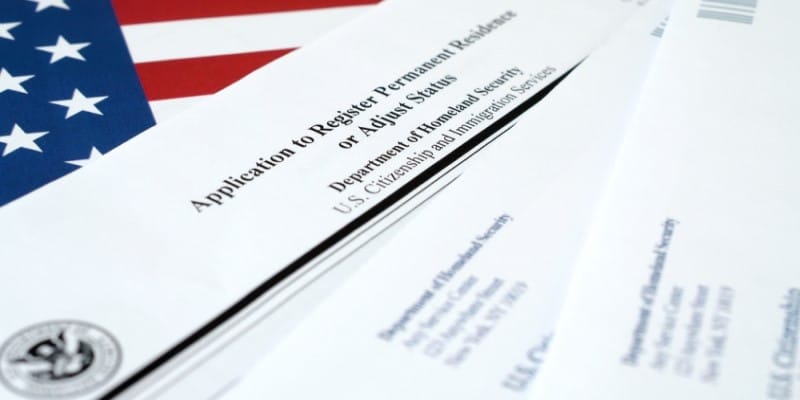
By Marta Lillo
The after-effects of the final rule for the U.S. Citizenship and Immigration Services (USCIS) filing fees hike announced for Apr. 1 continues, with EB-5 immigration attorneys questioning the fairness of the increase for EB-5 investors, not expecting improvement in agency services despite the higher prices, and questioning the justification for the ruling.
The immigration agency’s failure to complete a mandatory fee study before announcing the new fees in January raises questions about the decision’s legality.
The implementation of the Reform and Integrity Act of 2022 (RIA) included a provision that required the USCIS to conduct this study to explain a price increase. It was supposed to be submitted six months after the law was passed (March 2022).
“It’s been almost two years since the passage of the RIA”, EB-5 attorney Daniel Zeft of Law Offices of Daniel A. Zeft says. “This study was supposed to explain or justify why the fees would be raised. And they didn’t do the study. Where’s the study?” he questions.
“USCIS has not yet conducted this statutorily required fee study to determine what fair fees should be charged,” adds EB-5 attorney and chair of the Immigration Law Group at CSG Law, Samuel Newbold.
As the study is not available for review, it is unclear where the calculation for the increase originates, according to the attorneys.
“There’s no clarity as to where the calculation for the increase comes from,” Newbold says. The calculation “doesn’t come from anywhere. It’s just a cash grab with an arbitrary basis. USCIS sees the EB-5 stakeholders as rich people who can afford to pay more than their fair share so that USCIS can use the excess to fund other parts of USCIS operations.”
Tammy Fox-Isicoff, an EB-5 immigration attorney and co-founder of Rifkin & Fox-Isicoff, P.A., says the absence of the mandatory study could lead to litigation against the USCIS for raising the fees beforehand. “I’m sure it will be litigated! Never has an agency done so little and charged so much. EB-5 gets the slowest processing of any petition by leaps and bounds. It was supposed to be a two-year program – the I-526 takes, on average, over five years, except post-RIA rural and high-unemployment [set aside categories established by RIA]. The I-829 takes at least four years. This is unacceptable and outrageous. Many won’t live long enough to see their residence. The fees for advising of a change in management are usurious. USCIS should not be the agency running this program. It’s clear the agency wants to kill the program.”
Zeft also argues that the reasoning behind the fee hike for EB-5 could respond to other motivations rather than just higher costs and visa demand.
“The new USCIS filing fees, which apply on April 1st, include tremendous increases for the filing fees for EB-5 petitions and applications. It seems that USCIS has decided that EB-5 investors, regional centers, and developers will be paying these significantly higher filing fees to pay for the surge of asylum cases at the US southern border. Also, this occurred after USCIS did not complete the fee study regarding EB-5 that is mandated by the RIA. It seems that this overall situation may be grounds for a lawsuit against USCIS,” Zeft states.
USCIS says it’s conducting the mandatory study needed to raise EB-5 fees
The USCIS said in January that the update does follow a comprehensive biennial fee review required by law that found that its current immigration fees schedule failed to meet post-COVID-19 goals of recovering full costs of everything from agency operations to additional staffing requirements, among other essential investments.
In an emailed statement to EB5Investors.com, the USCIS’ press office explained that the Department of Homeland Security (DHS) has begun the fee study required by RIA “to meet the additional fee guidelines and processing time requirements. The law requires DHS to set fees for EB-5 program-related immigration benefit requests at a level sufficient to recover the costs of providing such services and completing the adjudications within certain time frames.”
According to the USCIS’ emailed statement, the hike in fees for the EB-5 program is in line with the fees charged for other benefit requests. The DHS feels that the financial requirements of the investor visa program are not suitable for transferring its costs to be borne by the fees paid for other requests.
“The final rule increases EB-5 program fees consistent with the fees for other benefit requests. As explained in the final rule, the fee amounts indicated by the full cost recovery model for the immigrant investor forms are not capped or decreased below the estimated full cost recovery as with some other forms, and DHS believes that the requirements for financial wherewithal in the program are inconsistent with shifting the costs of the EB-5 program to be funded by the fees paid for other requests.”
EB-5 processing times are not expected to change despite higher fees
USCIS receives approximately 96 percent of its funding from filing fees and not from Congress funds. The agency’s fees have remained unchanged since 2016.
The attorneys caution EB-5 investors not to anticipate improvement in processing times and other services associated with their visa application process after the fee hike.
“USCIS has raised filing fees for EB-5 cases before and it did not result in faster adjudication times or better customer service. There is no expectation that raising fees again this time will yield better results,” Newbold insists.
There is “no indication that USCIS is working on improved service but the statute mandates this,” Fox-Isicoff adds. The “USCIS rejected the statutory mandates in issuing the new fees.”
Zeft explains that it would not be possible for investors to demand better service from USCIS since the agency pays for its operations mainly through filing fees from all its immigration programs, not just from EB-5. “They’re taking those filing fees and then using the money as they like. They’re not taking just the EB-5 fees and using them only to process cases. It’s all one big agency. We should not expect improved processing times as a consequence of the filing fee hike.”
DISCLAIMER: The views expressed in this article are solely the views of the author and do not necessarily represent the views of the publisher, its employees. or its affiliates. The information found on this website is intended to be general information; it is not legal or financial advice. Specific legal or financial advice can only be given by a licensed professional with full knowledge of all the facts and circumstances of your particular situation. You should seek consultation with legal, immigration, and financial experts prior to participating in the EB-5 program Posting a question on this website does not create an attorney-client relationship. All questions you post will be available to the public; do not include confidential information in your question.








